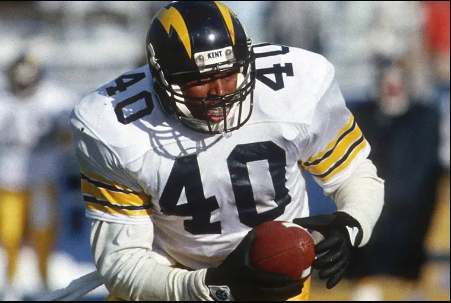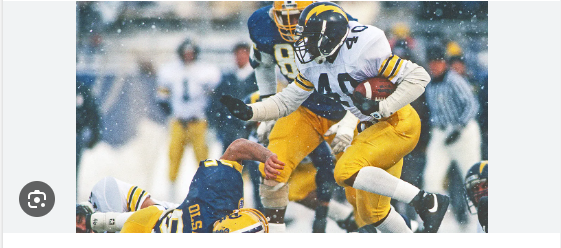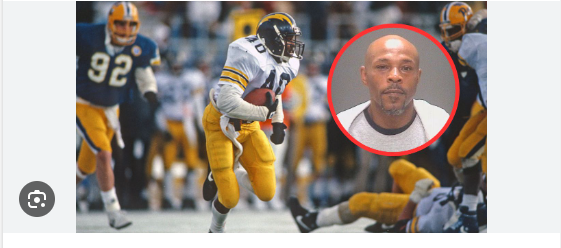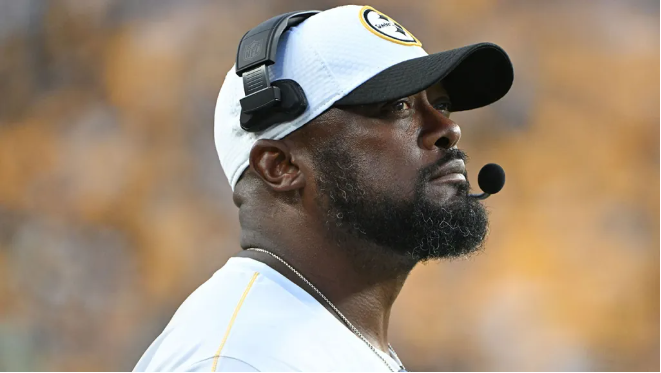Life can move swiftly if we’re not careful, as evidenced by the story of former Pittsburgh Steelers running back Eric Wilkerson. In a recent exclusive interview with the Steelers Takeaway, while serving time for crimes committed in 2022, Eric reflected on his downfall from a celebrated athlete to a convicted felon.

During the interview, Eric discussed the beginning of his downward spiral. After achieving fame with the Steelers, he became embittered by the sport and blamed it for his troubles. “I got frustrated with football and blamed it for everything that went wrong. I stopped watching it for years,” he explained. The constant questions about his career from people at bars and other places only fueled his resentment.
He admitted to fabricating excuses about injuries to avoid conversations about his past. Over time, he lost touch with his friends, who, he said, were only around for the money and fame. With their departure came depression, which led him into a life of drug addiction. “I fell into drugs as a new form of solace, a new audience for me,” he shared. He used crack cocaine for 20 years, and while he didn’t see himself as a dealer, he would sell it if asked. The drugs didn’t make him act erratically, but they led him to make poor choices.

Eric’s life took a tragic turn in 2022 when he was convicted of involuntary manslaughter and tampering with evidence in the fatal stabbing of Brian Weems II in Ohio. Following an argument, Eric attacked Weems with a knife, stabbing him 28 times. “I lost control,” Eric admitted, revealing that the altercation escalated when he saw Weems reaching for a gun. He described the violence as a result of his deteriorated state and the bad influence of drugs.
At 57, Eric is serving a 12 to 17.5-year sentence and will be eligible for parole in about 11 years, at which point he will be around 70. The contrast between his past football success and his current situation is striking.
Eric’s football career began at Cleveland Central Catholic High School and flourished at Kent State University, where he became a standout player. He accumulated impressive stats, including 3,830 rushing yards and 36 touchdowns, earning accolades such as MAC Player of the Year and Offensive Player of the Year in 1987. Kent State retired his No. 40 jersey in his honor.

Despite his collegiate achievements, Eric’s NFL career was less successful. He had a brief stint with the Pittsburgh Steelers in 1989, followed by a short time with the Detroit Lions in 1990, and played in the World League of American Football and the Cleveland Thunderbolts in the early 1990s before his professional career ended.
Now, as Eric faces the end of his sentence, he has one hope for the future. “My grandson plays football now and is looking for a mentor. I’d love to help him someday,” he said.


